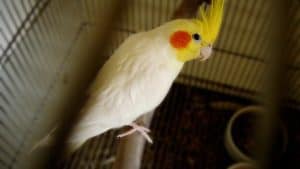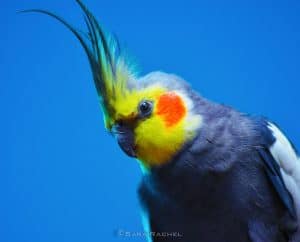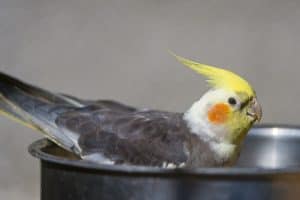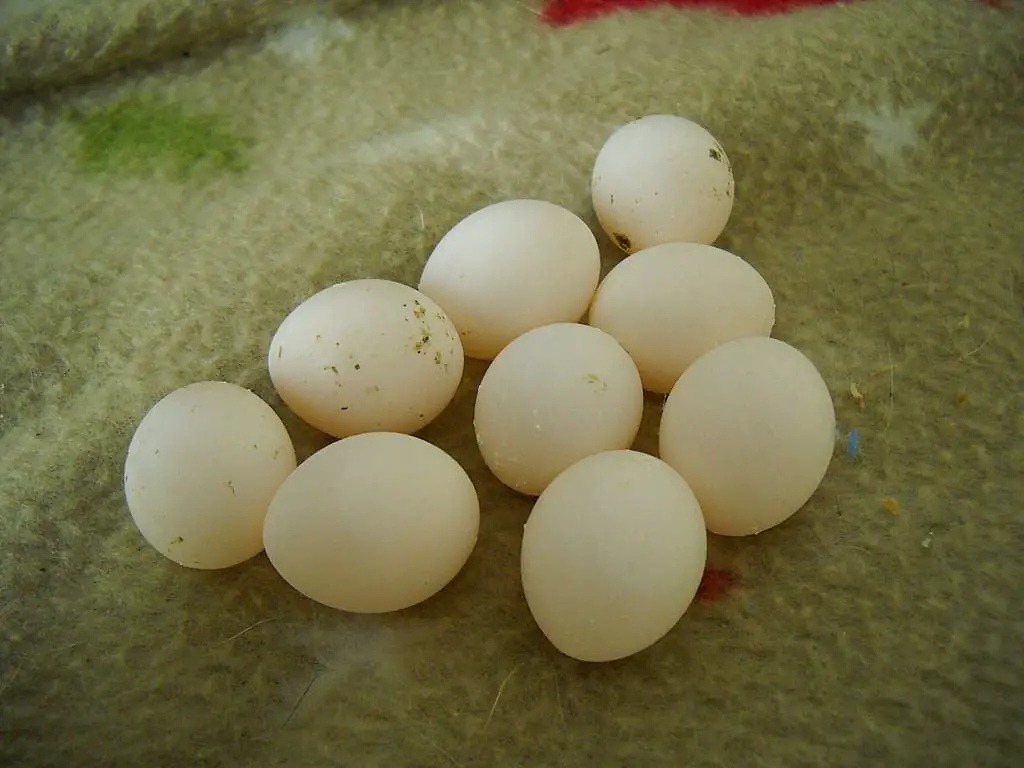If you are a proud owner of a pet bird, you know how exciting it is to see them lay an egg. However, it can be concerning when you find your cockatiel laying eggs on bottom of cage. As a pet owner, it is essential to understand why your bird is exhibiting this behavior and how you can prevent it from happening again. In this post, we will discuss why your cockatiel is laying eggs on the bottom of the cage and how you can stop it from happening.
Cockatiel Reproductive System
Before we dive into the specifics of why cockatiels lay eggs on the bottom of the cage, it is important to understand their reproductive system. A female cockatiel reaches sexual maturity between the ages of 8 and 12 months. During this time, they undergo hormonal changes, which trigger the reproductive cycle. These hormonal changes also cause female cockatiels to become more territorial and aggressive, especially during breeding season.
Egg Laying Behavior in Cockatiels

In their natural habitat, cockatiels lay their eggs in cavities, such as tree hollows. However, in captivity, they may not have access to an adequate nesting site, which can cause them to lay eggs on the bottom of the cage. While laying eggs on the cage floor is not entirely abnormal, it can be a sign of underlying health issues, especially if your bird is exhibiting excessive egg-laying behavior.
Male cockatiels are also known to occasionally lay eggs, usually due to hormonal imbalances or a lack of companionship. This is why it’s important to ensure that your cockatiel has an appropriate cage mate if you want them to breed.
Common Causes of Egg Laying on the Cage Bottom
Inadequate Nesting Site
One of the primary reasons for cockatiel egg laying on the bottom of the cage is that they do not have access to an adequate nesting site. To encourage your cockatiel to lay eggs in a designated area, provide them with a nest box or other suitable location. If possible, fill the nesting site with soft and comfortable materials, like shredded paper towels or cotton wool.
Lack of Stimulation and Environmental Enrichment
Cockatiels are active and curious birds that require a lot of mental and physical stimulation. If your bird is not getting enough stimulation and enrichment, it may start to lay eggs on the bottom of the cage. To prevent this from happening, provide your bird with plenty of toys and perches to keep them entertained. You can also provide them with soft foods, such as scrambled eggs and cooked vegetables, to encourage their egg-laying behavior.
Health Issues or Underlying Medical Conditions

If your cockatiel is exhibiting chronic egg-laying behavior, it may be a sign of an underlying medical condition, such as chronic reproductive syndrome or egg binding. Chronic egg laying occurs when a female bird lays more eggs than they can physically handle. This can result in poor muscle tone and other health issues, such as calcium deficiency. Egg binding, on the other hand, occurs when a bird is unable to lay an egg due to an obstruction in their reproductive tract. If you suspect your bird is egg-bound, it is important to take them to an avian veterinarian immediately.
Male cockatiels can also lay eggs, although this is much less common than female birds.
Preventing Egg Laying on the Cage Bottom
If you want to prevent your cockatiel from laying eggs on the bottom of the bird’s cage, you need to provide them with an adequate nesting site and plenty of stimulation and enrichment. Here are some tips to help prevent egg-laying behavior:

- Provide your bird with a suitable nesting box and nesting material. This will encourage them to lay their eggs in a safe and secure location.
- Give your cockatiel plenty of toys and perches to keep them entertained. This will reduce their stress levels and prevent them from laying eggs out of boredom.
- Feed your cockatiel a healthy and balanced diet that is rich in calcium. This will help prevent calcium deficiency and ensure that they have the necessary nutrients to produce healthy eggs.
- Limit your bird’s exposure to the opposite sex, especially during breeding season. If you have a single cockatiel, consider getting them a stuffed animal as a companion instead of introducing another bird into their cage.
- If your bird starts laying eggs on the bottom of the cage, remove the cockatiel eggs immediately. Leaving the eggs in the cage can encourage your bird to lay more eggs, which can lead to health issues and reproductive disorders.
- If you suspect that your bird has an underlying medical condition, take them to an avian veterinarian as soon as possible. They can diagnose and treat any health issues that may be causing your bird to lay eggs on the bottom of the cage.
Final Thoughts: Why is My Cockatiel Laying Eggs on Bottom of Cage?
Laying eggs on the bottom of the cage is not entirely abnormal behavior for female cockatiels. However, it can be a sign of underlying health issues, especially if your bird is exhibiting excessive egg-laying behavior. As cockatiel owners, it is essential to provide your bird with an adequate nesting site, plenty of stimulation and enrichment, and a healthy diet to prevent them from laying eggs on the cage floor. If you suspect that your bird has an underlying medical condition, take them to an avian veterinarian immediately. By following these tips, you can help ensure that your cockatiel stays healthy and happy.
Cockatiel Egg Candling: What to Look for During Each Stage of Development
How to Bond Two Cockatiels (4 Tips)
- Why Is My Cockatiels Poop Watery
- Why Is My Cockatiel Vomiting
- Why Is My Cockatiel So Quiet
- Why Is My Cockatiel Shaking
- Why Is My Cockatiel Losing Feathers
- Why Is My Cockatiel Laying Eggs On Bottom Of Cage
- Why Is My Cockatiel Eating So Much
- Why Is My Cockatiel Chirping So Much
- Why Does My Cockatiel Scream When I Leave The Room
- Why Does My Cockatiel Nibble Me
- Why Does My Cockatiel Keep Yawning
- Why Does My Cockatiel Hang Upside Down
- Why Does My Cockatiel Fly On My Head
- Why Does My Cockatiel Face The Wall 6 Reasons
- Why Does My Cockatiel Bob His Head
- Why Does A Cockatiel Stand On One Leg
- Why Do Cockatiels Sing
- Why Do Cockatiels Hiss
- Why Do Cockatiels Have Crests
- Why Do Cockatiels Eat Their Poop
- Why Do Birds Rub Their Beaks
- Why Do Birds Poop In Their Water
- Why Cockatiels Like Head Scratches
- Why Cockatiels Grind Their Beaks
- Why Choose A Cockatiel Bird As A Pet
- Why Are My Cockatiels Tail Feathers Falling Out
- Why Are My Cockatiels Fighting
- Why Are My Cockatiels Feet Warm
- Why Are Cockatiels So Dusty



